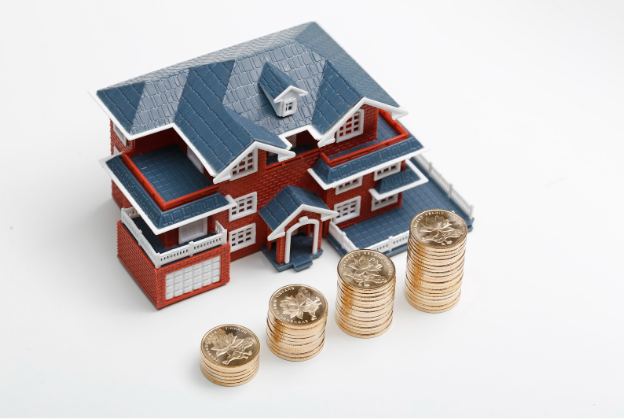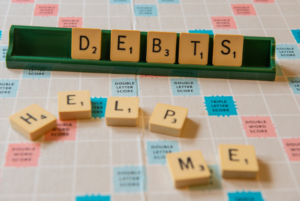
Should I Liquidate My Assets to Pay Off Debt?
Are you currently thinking about selling your things to pay off debt? It’s a big decision that could probably help you get rid of your debt for good. However, making such a decision has consequences, and you really need to think it through.
What is Asset Liquidation?
Asset liquidation is all about turning things you own into cash. It could be your car, stocks, or a piece of land. Selling these can give you the money to pay off debts. But it’s not just about selling; it’s about understanding what you’re giving up. These assets could be worth more later, so it’s about deciding what’s best for your peace of mind and future. Not only is it about the worth, it could be an inheritance from your forefathers that has been passed down, and would be so painful to let go of such a gem because of debt. Some assets, like a home, aren’t just about money; they’re about your life and memories. Selling these can have a big emotional cost.
Different Types of Debts
Not all debts are the same. Some are tied to things you own, like your house or car, and this makes them secured debts. If you don’t pay, you could lose what you bought with the loan. Then there are unsecured debts, like credit card bills, which are not linked to specific things you own.
Urgency of Debt Repayment
High-interest debts like some credit card bills can get out of hand. They are usually the debts to pay off first. But there are also debts with lower interest rates that might not need immediate attention. Deciding which debt to pay off first is about balancing what’s costing you the most and what you can handle without putting yourself in a tough spot.
Emotional and Psychological Impacts of Selling Assets

Letting go of your assets isn’t just a financial decision; it can hit hard emotionally too. It could be that car you love or a piece of jewelry with value, selling these items can feel like losing a part of your life or achievements. When you want to decide on liquidating your assets, don’t just focus on the money aspect only, think about how you’ll feel afterwards. Will the relief from debt outweigh the sadness of letting go of the assets? You need to answer this question genuinely.
What to Liquidate
Deciding to sell your things to settle debts is a big move. It’s also about choosing wisely what to sell and when. You can’t just sell everything and anything, applying wisdom is important.
When you finally decide to sell some of your things, start with things that are easy to turn into cash and that you’re not too attached to. For example, stocks or a second car might be easier to let go of than your primary home or cherished piece of jewelry. When you do it this way, you get the cash you need without too much regret.
The Impact of Asset Liquidation on Your Credit Score
Selling stuff to pay off debt can actually be good for your credit score in the long run. When you reduce your debt, especially high-interest credit card debt, it can make your credit report look a lot better. But if you sell everything off and have no assets left, it may affect getting loans in the future. So, while selling assets can help now, think about keeping some things that can prove your stability later.
Tax Implications of Selling Certain Assets
You also have tax to deal with when selling assets. Some things, like stocks or property, might have capital gains taxes when you sell them for more than you bought them. This means part of what you make goes to taxes, which can eat into the cash you were counting on to pay off debts. So, before you sell, figure out what the tax hit might be, so you’re not caught off guard.
Alternatives to Consider Without Liquidating Your Assets
Facing a mountain of debt might make you feel selling your assets is the only way out, but there are other paths you can take. Before you decide to part with your valuable assets, explore alternatives that might be less painful in the long run.
Debt Consolidation Loans
One way to tackle overwhelming debt without selling your stuff is through a debt consolidation loan. Imagine lumping all your debts into one basket with a lower interest rate. This can make your monthly payments more manageable and save you money on interest. But read the fine print to ensure this move truly benefits your financial situation.
Budget Adjustments and Increasing Income Streams
Sometimes, the solution to getting rid of debt doesn’t involve dealing with it directly. This means taking a hard look at your budget and cutting back on non-essential expenses. Alongside budgeting, consider ways to boost your income. Whether it’s taking on freelance work or picking up a part-time job. Increasing your cash flow can help you chip away at your debts without sacrificing your assets.
Building an Emergency Fund to Avoid Future Debt
An emergency fund will help you cover unexpected expenses without falling back into debt. Start saving by setting aside a small portion of your income regularly. The goal is to build up enough to cover 3-6 months of living expenses.
Debt Counsellors

Debt counsellors can help you assess the full scope of your financial health.
Every financial situation is unique, and what works for one person might not be the best approach for another. Professionals in debt counselling take a personalised approach to your situation.
Reduce Your Debt Without Losing Your Assets
Do you know you can reduce your debt by up to 80%, and interest will stop immediately? You can speak with one of our debt experts at EmpireOne Credit to learn how we can assist you without losing your assets. Call us at (416) 900-2324 to schedule a free consultation with us. Being debt-free feels good.





